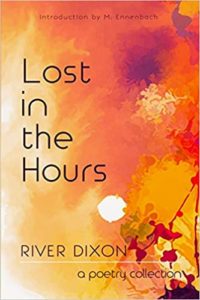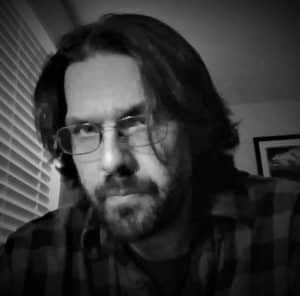
Dixon writes of a letter received and imagined to be from a former love. The envelope is placed in a drawer, unopened, representing the letter never sent. He considers what happens when you realize that life is very daily, and usually repetitive. Loves are lost, and sometimes regained. Failure is imagined as a clean shovel. He recognizes hope and understanding when a lot of life concerns waiting. And he writes about pain, and memory, and loss, and love.
But all of this dreaming, imagining, and musing has a point. It’s not only toward understanding one’s self, but also grasping what matters, life’s important things, the people who give life meaning and purpose. It’s not all a dream.
If I Cared, One Morning

Through the lens of morning light
To finally find a way, to dream
As the rest of the world
Shakes off its golden slumber
To see things as they are
If only for a while, to capture
The brief moments between
Then and now, before you
Give up, give in, to the temptation
The expectation of a life out there
When everything you need
Is right here, abandoned, waiting
For your return, to be discovered
If you ever remember
Or find the time to look around you
With the same intensity as you offer
The things that pull you, direct you
Piece by piece, away from everything
That’s already been given to you

River Dixon
The collection finishes with a long, 13-page poem entitled “Tortured,” a story involving writers and poets, presumably those who have helped form the poet. They include Ernest Hemingway, Truman Capote, Sylvia Plath, Emily Dickinson, and (perhaps especially) Charles Bukowski. It’s a meditation about what writers and poets do, leading us through their dreams to dream our own.
Dixon is a poet and fiction author. He’s published Beyond the Field, a story for both children and adults; Colder: A Collection of Poetry and Prose; and The Stories in Between. He lives in the American Southwest, or, as he describes it, he “has unknowingly found himself trapped in the incessant heat and beauty of Arizona.” This is where he writes his poems and stories.
“If I came to you / Lost in the hours,” Dixon writes, “Could you offer / a morsel of respite / A place for my eyes to rest.” The dreams of Lost in the Hours do precisely that, offering reflection and respite, allowing you to slow the pace, understand, and embrace what matters.
Related:
Poets and Poems: River Dixon and “Left Waiting”
Photo by Ian Dick, Creative Commons, via Flickr. Post by Glynn Young.
__________________________

“I require all our incoming poetry students—in the MFA I direct—to buy and read this book.”
—Jeanetta Calhoun Mish
- Poets and Poems: Michelle Ortega and “When You Ask Me, Why Paris?” - April 10, 2025
- Robert Waldron Imagines the Creation of “The Hound of Heaven” - April 8, 2025
- Poets and Poems: Luci Shaw and “An Incremental Life” - April 3, 2025
Leave a Reply